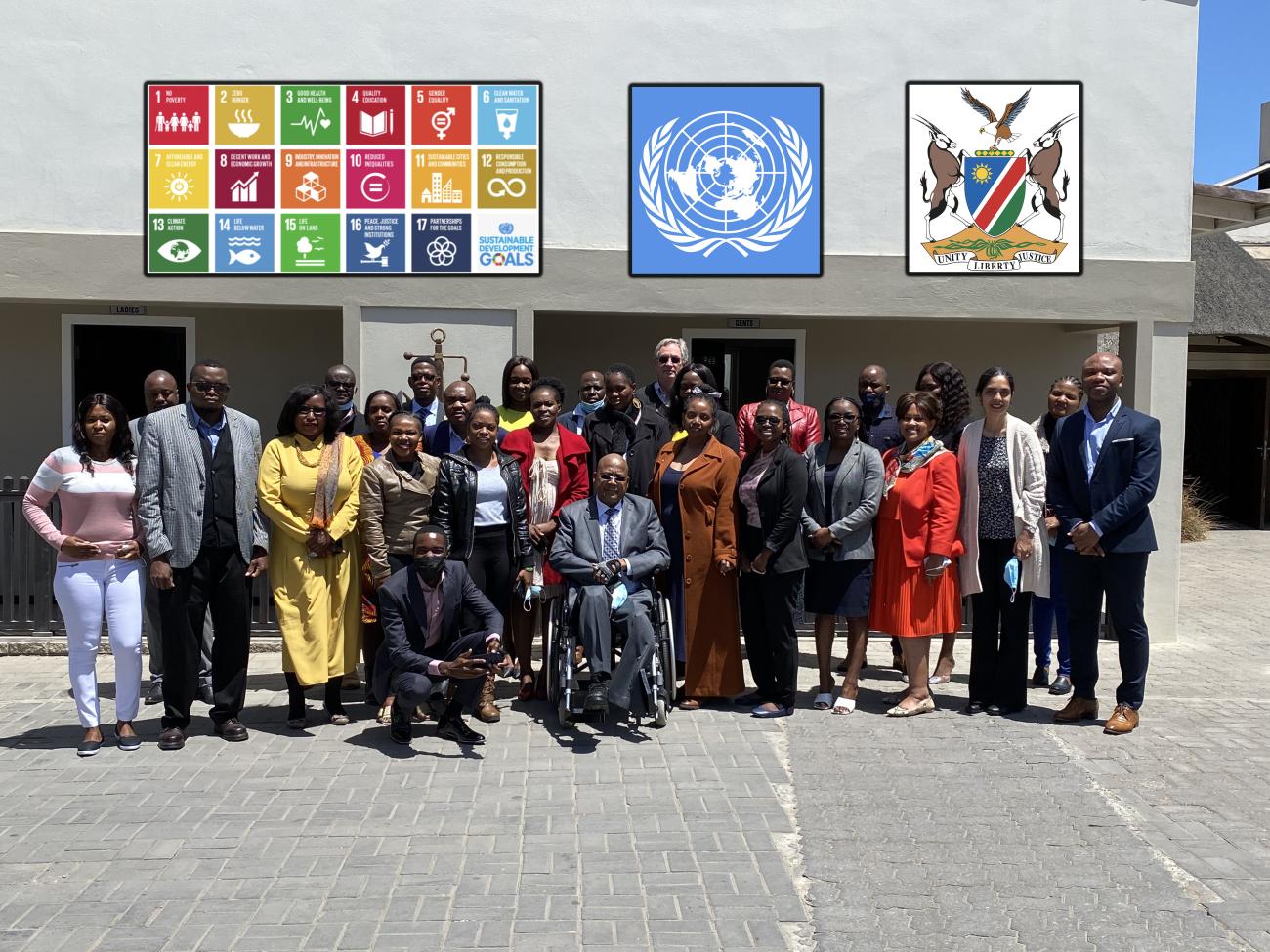This event held in Swakopmund on 25 - 29 October forms a part of the UN system support to accelerate the achievement of the SDGs in Namibia. The aim of the workshop is to build the capacity of participants to formulate sound and effective policies.
Focusing on trade, under the theme of Strengthening AfCFTA Implementation for the SDGs and Trade Policy Development in Namibia participants learned that trade is one of the of the Means of Implementation (MOI) of the SDGs, for mainstreaming and acceleration, under SDG 17. Trade is also linked to, and it has implications for all the SDGs. Trade is a driver of growth and development. But there is need to account for distributional effects towards inclusive growth and sustainable development, as has been showcased by the disruptions to trade; and shocks to economy and society during COVID-19, and analysed in the 2021 UN World Economic and Social Prospects Report (WESP) and UNCTAD’s Trade and Development Report (TDR).
Africa is at the cusp of her development journey as under the African Continental Free Trade Area (AfCFTA) began on 1 January 2021.
Namibia finds herself at an opportune time, with the ability to shape the country’s trade policies in a coherent and coordinated manner. The country is finalizing: 1) The Namibia National Trade in Goods Policy; and 2) The Namibia National Trade in Services Policy. It is also committed to developing the 3) Namibia National AfCFTA Implementation Strategy. These need alignment and coordination.
In his Opening statement as read by Ms. Itah Ndjarakana, Deputy Chief National Development Advice, Mr. Sylvester Mbangu, the Chief National Development Advice on Macroeconomic Planning at NPC, stated that “Namibia is known to be one of the countries with best polices in the world, however, there are still some notable challenges with respect to policy development, review, implementation monitoring and evaluation, which resulted in the approval of the revised structure of the (NPC) by Cabinet, in 2011. These series of training programmes are aimed at improving effectiveness and efficiency of government and public service delivery as we strive towards the realization of Sustainable Development Goals (SDGs).”
“The development of the two policies shows Namibia’s commitment towards the implementation of SDG and recognises the potential role of trade as a means of implementation – an instrument that can be used to achieve the SDGs.” She added.
In remarks by Mr. Sen Pang the UN Resident Coordinator in Namibia as delivered by Ms. Eunice Ajambo the UN RCO Economist, he noted that “I continue to emphasize the importance of inclusive trade and the integration of the Leave No One Behind (LNOB) Principle in the formulation and implementation of trade policy. The beneficiaries of inclusive trade must include women, youth, MSMEs, and informal sector traders, as we recover from COVID-19 and build back better in a resilient manner. Accordingly, digitalization, e-commerce, innovation, sensitization and awareness raising, must be leveraged as enablers for inclusion.”
Representatives of the Government of the Republic of Namibia at the workshop included from the Ministry of Industrialization and Trade (MIT), which holds the mandate on Trade policy, in the country. Present too were representatives of the Namibia Revenue Authority (NamRa) under the Ministry of Finance (MoF) and the Ministry of Gender Equality, Poverty Eradication & Social Welfare (MGEPESW). Their participation in the workshop speaks to the interconnected nature of trade issues. It is also a sign of the coherent and cooperative approach to policy implementation, that is needed to make the SDGs a reality.
Given the transboundary nature of trade, a representative from the Department of Trade, Industry and Competition (DTIC) of the Republic of South Africa.
The Secretariat of the African Union, under which the AfCFTA is being coordinated, also provided expert advice, input and contribution on the status of the AfCFTA including Phase I,II, and III issues, good practices for implementation, and opportunities for Namibia.
Delivering as One, UN System technical and financial support was contributed by the African Trade Policy Center (UNECA), Sub-regional Office for Southern Africa (UNECA), UNCTAD, UNDESA, ILO, WTO, under the joint coordination of the NPC, GIZ and UN Namibia.
For additional information, contact:
- Mr. Sylvanus Nambala, Chief National Development Advisor—NPC (SNambala@npc.gov.na)
- Mr. Batanai Chikwene, Programme Management Officer, African Trade Policy Center (ATPC)—UNECA (chikwene@un.org)
- Ms. Eunice Ajambo, Economist & Development Coordination Officer—UN Namibia (ajambo@un.org)





